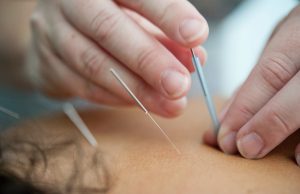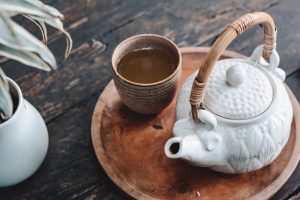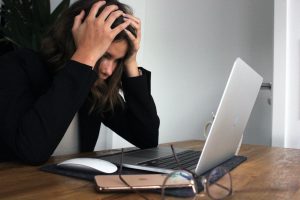Acupuncture
4 Ways Acupuncture Can Be Used

To ask what can acupuncture treat is a bit like asking what can be improved by green vegetables or water, exercise, sleep, or meditation. Acupuncture is inherently anti-inflammatory, inherently pro-circulatory, plus systemically modulatory, so in theory as well as in its highest level of practice, it can improve nearly any condition. Whether or not a full resolution is available depends on the severity of the condition, skill level of the practitioner, and the lifestyle of the patient.
People use acupuncture for all different reasons, the first and most obvious being treatment towards HEALING. They come weekly for between 2-6 months, take heed to corresponding Eastern diet and lifestyle recommendations until their chief complaint is more or less fully resolved. This is ideal.
Others use acupuncture for SUPPORT, while going through something like chemotherapy treatments, intense physical training, and/or just a difficult time in life. The body somatically discerns only so much difference between these three. Weekly or bi-weekly treatments within such contexts can go lengths to mitigate their side effects, minimize suffering, and long-term ails as a result. The scientific research on acupuncture’s benefits while going through chemo is abundant and well-known at this point. We most often try to support the body’s healthy fluids and cellular energy that the oncology treatments have to exploit, additionally limiting side effects such as neuropathy, diarrhea, or just general fatigue.
RECOVERY is another great option when we miss the window on support. Immediate post-surgical recovery is a realm in which acupuncture thrives and has gotten great recognition in the west in recent years, where I’ve even heard of it being prescribed by surgeons the way physical therapy has always been. Frequent acupuncture can prevent the formation of scar tissue post-surgery, which many years down the line can prevent arthritis. We can never know how many problems we’ve avoided through pro-activity (personally, when I reach the other realm I do hope to get a full report).
That leads me to PREVENTION. Not everyone has symptoms, but everyone has a pattern. We all have genetic weaknesses, organ systems, or body parts where we are more vulnerable and inflammatory. Our patterns, or respective physiological constitutions are generally leading us towards our own unique discomforts or diseases. What holistic medicines have to offer is regular treatments intended at balancing these patterns and subsequently delaying and/or minimizing potential suffering. While this is most commonly used by young athletes to prevent physical injuries, I personally find the greatest reward in using electo-acupuncture at particular scalp regions on elderly patients to prevent cognitive decline and neurological disease.
This is one of the cool things about practicing Chinese Medicine—that on any given day I get to see a group of people, each of whom are coming to me at different stages in their lives and healing journies, thereby requesting a very different thought process and approach. It keeps me on my toes, which hopefully might act as a source of prevention of my own cognitive decline.
So thank you!
What to Expect at Your First Acupuncture Appointment

Just like every patient is unique with specific needs and expectations, every practitioner is also unique with specific needs and expectations. If acupuncture is a new experience for you, you might be wondering what to expect. While not every practice is the same, there are a few general principles that will guide your first appointment. continue reading
The Physiology of Wildfire Smoke (in NYC)
 While the sepia tones and brush aromas from this week’s Canadian wildfires’ spillover to the northeast might have looked great in a photograph, or smelled enticing in 1% of its dosage (if seated by a campfire with marshmallows), on the ground in real life it was daunting, and for many systemically disruptive. Personally, I was outdoors plenty, both on my commute and on my break at Union Square farmer’s market, albeit with a mask on, and thankfully did not experience symptoms.
While the sepia tones and brush aromas from this week’s Canadian wildfires’ spillover to the northeast might have looked great in a photograph, or smelled enticing in 1% of its dosage (if seated by a campfire with marshmallows), on the ground in real life it was daunting, and for many systemically disruptive. Personally, I was outdoors plenty, both on my commute and on my break at Union Square farmer’s market, albeit with a mask on, and thankfully did not experience symptoms.
Chinese Medicine nicknamed the lungs “the delicate organ,” which really they are not—in fact quite the opposite—however what is meant by this is their being most and primarily vulnerable to external pathogens. Toxic fumes are an external pathogen. They dry the sinuses and respiratory microbiome, which can bring with it symptoms such as chest oppression, frontal (or maybe temporal) headaches, and of course, dryness. Or as my wife and I learned, if you are a 2-year-old trapped indoors as a result, rabid, recurring cases of cabin fever.
The formula everyone needed at least one day of at home this week was “Xiao Chai Hu Tang,” or “Minor Buplureum (root) Decoction.” It includes buplureum root to clear heat from the upper body by increasing circulation downwards; pinellia root to dissolve accumulation in the chest and sinuses; scutellaria root to clear heat specifically from the lungs; ginseng to generate healthy fluids in the stomach to protect it from the bitter nature of the other herbs; ginger to warm the stomach for a similar reason; and finally licorice and red dates to generate healthy fluids in the stomach, chest, and central nervous system.
It’s no wonder this is one of the most commonly prescribed herbal formulas in Chinese Medicine. Nevertheless, it should almost always be modified according to the individual; especially those with low energy, low appetites, and/or aversions to cold weather. Typically, these were the body types I saw most impacted by the air pollution this week. Frontal headaches, dryness in the throat, and chest oppression, as a result of the external toxicity exacerbating their pre-existing internal toxicities as a result of metabolic dysharmony. Not to worry, as my father always said. There’s hope.
If any symptoms are lingering and you are not presently coming for acupuncture or taking herbs I would recommend any or all of the following:
- Hot mint tea, maybe with honey, to open the chest, cool, and lubricate the sinuses
- Asian pears, or fresh pear juice, also to lubricate the lungs and sinuses.
- Rice congee with chopped up pears, red dates, some honey and cinnamon—YUM—to generate healthy fluids in the respiratory and gastrointestinal microbiomes.
- Gentle exercise, such as qi gong, yoga, or deep breathing. NOT… outdoor running, for the love of God.
- If nothing else, just stay hydrated, preferably with room temperature or hot water. Cold drinks constrict blood vessels, which obviously then traps local inflammation.
These are great treatments to treat only the branch of the problem, as its root cause is of course Republicans.
Caffeine: How, When, and What to Drink

If I had to choose my two personal, favorite vices they would easily be caffeine and alcohol, the latter of which I take mostly in great moderation of course, out of respect for how poisonous it can be to the body. My teacher, Suzanne, often stresses to us that it is important to give the body some time to recover after drinking, inadvertently refuting the notion that 1-2 glasses every day is unacceptable.
As for caffeine, I used to be a “one a day” guy, that is until my baby was born, having since graduated to two a day. I drink an organic half-caf from Purity Coffee shortly after waking, followed by some kind of tea shortly after breakfast.
Functional neurology recommends waiting at least 60 minutes after waking to have your first cup of caffeine, as up until that time the cortisol hormone is still rising and should not be over-stimulated, lest we are more likely to “crash” later on. Chinese Medicine goes a step further (doesn’t it always?) and recommends waiting at least until 7am, as the hours between 5-7am correspond to the “qi” of the large intestine, which is obviously vulnerable to coffee. I say take this information and do your best as it relates to your present lifestyle and struggles.
On days where I have red meat, pork, and/or alcohol the night before I drink green tea, as the green tea leaf has a more cooling effect on the microbiome, regardless of whether taken cold or hot (in fact cold green tea, from a Chinese Medical perspective is highly inadvisable, as few stomachs would benefit from pouring “cold cold” all over it). Other days, which make up the majority, I have black tea, preferably Pu-Erh for its naturally fermented pro-biotics and subsequent healthy warming effect on the gut. Other black teas are fine too, but as with anything consumable in America, it is highly recommended to find a good quality product.
Supermarket tea brands are comprised mostly of dust swept from tea manufacturing plant floors—not real tea leaves—thus will not yield much health benefits at all. It makes me sad and frustrated when I see so many people trying to do the right thing, buying green or black teas or vegetables at the supermarket, knowing they are not being rewarded for their efforts, frankly as a result of capitalism.
If you insist on consuming cold foods for breakfast, such as fruit and or yogurt, it is especially important to have it with black tea and minimize green tea and coffee, the latter of which also ultimately has a “cooling effect” on the stomach, evidenced in how it purges and softens stool.
As sleep is a huge priority for me, I stop drinking all caffeine by 11am. I know conventional medicine recommends 12pm, though I’ve never understood the science behind this beyond its relatively arbitrary marking as the start of “afternoon.” 11am, on the other hand, corresponds with the heart channel in Chinese Medicine’s circadian rhythm, which corresponds with our psycho-emotional health and central nervous system. This makes 11am-1pm an ideal time to reduce hyperactivity in the upper portion of our bodies through things like exercise, as opposed to pouring more stimulation into it with caffeine. Stopping caffeine by 11am also allots us the recommended 12 hours to flush it out of our systems by 11pm, which is the latest advisable bedtime, as per the same circadian rhythm and the body’s natural melatonin secretion.
If you are overly sensitive to caffeine, we generally see it as symptomatic of fluid deficiency in the upper portion of the body, namely the central nervous system, that generally requires herbal medicine and red meat to replenish. If you are overly insensitive to caffeine—people who can drink it right before bed and still get a good night’s sleep—we see it as an excess of pathogenic fluids in the upper portion of the body. This generally requires herbal medicine and avoidance of “damp-causing foods,” such as sugars, gluten, and dairy.
Can It Be All Stress?
 “It’s just stress,” is a diagnostic platitude commonly heard by patients when relaying either to friends or their doctor about some odd or non-immediately fatal symptom that lacks any conventional, empirical treatment.
“It’s just stress,” is a diagnostic platitude commonly heard by patients when relaying either to friends or their doctor about some odd or non-immediately fatal symptom that lacks any conventional, empirical treatment.
It would be an over-simplification to label this stock response as wholly or always dismissive—in my opinion it is more often a result of the listeners’ lack of knowledge of physiological nuances, disease spectrums, and of course the entire internal paradigm of Chinese Medicine.
The mind is en vogue in the past generation, so much so that people jump at the opportunity to sound mentally acute even while being mentally lazy in its default citation as a scapegoat for everything, the way fat was in the 20th century or sugar is now. It makes them feel aware of the more mysterious, all while maintaining an orthodox adherence to conventional medicine’s present understanding of things. I picture people picturing themselves as if sipping a small cup of whiskey wearing Coke bottle glasses and a bowtie in their reply: “It’s (probably just stress),” then putting their cup back down and nodding their head as if they’d just cured HIV.
While no one could dispute that stress is an important variable in the etiology of most illnesses, it is also just that: One important variable. So why when we have curious symptoms that conventional medicine has no explanation or treatment for do they never say: “It’s just diet?” “It’s just your sleep hygiene?” Or: “It’s just your exercise routine that needs refinement or reduction, or simply needs to exist?”
Why when one person experiences incredible stress does it show up as digestive issues, while for another it does as insomnia, and another as hives all over their skin? “People are different,” idiots might shrug and say, which isn’t untrue, but is an egregious oversimplification. People are different, which means if we each consumed diets and partook in exercises suitable to our own individual constitutions, we’d likely be able to ward off the ill effects of short or even medium-term life stressors.
If stress causes you low back or neck pain we know there is “dampness trapped on the exterior layer of the body.” If stress causes stomach issues we know there are already stomach issues, since most or many people can endure stress without such symptoms. If stress causes headaches or migraines then there was likely already some dysregulation of cerebrovascular flow in particular neurological pathways
In this way stress can be invaluably informative, by tipping our internal scale and showing us where we are weak, where in our bodies we are retaining pathogenic fluids, so we can properly treat, instead of dismissing it. Because odd, inexplicable symptoms are never nothing. They are not “all in our minds” or insignificant. Instead, from a Chinese Medical perspective, sadly they are potential coming attractions—foreshadows of diagnoses to come.
I apologize if this sounds dark or ominous. My intention is the opposite, to offer optimism and agency to those of us who have been repeatedly implied to that we must resolve all of our internal turmoil in order to be free of a particular problem. While I am all for a daily practice of meditation, prayer, community, and anything else that reduces stress, we should be able to also rely on medical providers to step in with something more to offer during periods where our practice of psycho-emotional work and discipline just is not enough.

